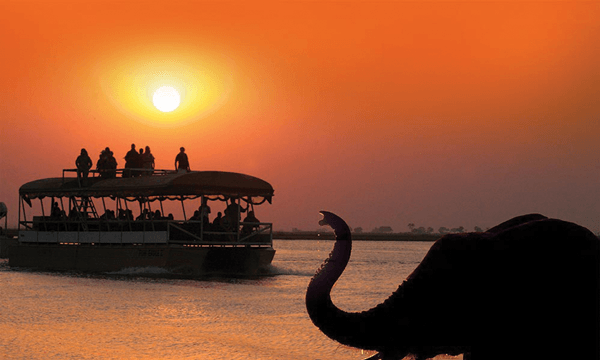Source: Lake Kariba pollution threatening tourism, wildlife – NewsDay Zimbabwe
BY OBERT SIAMILANDU
GARBAGE floating on Lake Kariba is said to be posing a serious threat to aquatic life and human health, and discouraging tourism.This was revealed by conservationist and Kariba Tourism and Business Indaba co-ordinator Cephas Shonhiwa yesterday, who told NewsDay that concerted efforts should be made to save Lake Kariba from pollution.
Shonhiwa said there was need to come up with waste management policies to deal with the growing presence of plastic waste among other rubbish that was being discarded into the lake, on shore, or brought indirectly to Lake Kariba by other rivers, through sewage, storm water or wind.
“Trash in our lake is a symptom of our throw-away society and our approach to how we use our natural resources,” Shonhiwa said.
“It affects every water body and shows us in highly visible terms the urgency of shifting towards a low carbon, resource efficient green economy. One community acting in isolation will not be the answer.
“We need to address Lake Kariba debris collectively across community boundaries and with the private sector, which has a critical role to play both in reducing the kinds of wastes that can end up in the world’s oceans, and through research into new materials. It is by bringing all these players together that we can truly make a difference.”
It is estimated that some 270 marine species worldwide are affected by ingestion of marine trash.
This includes 86% of all sea turtle species, 44% all seabird species and 43% of all marine mammal species.
“There is growing concern over the potential impact on human health of toxic substances released by plastic waste in the ocean,” Shonhiwa added, noting that scientists were studying whether contaminants linked to cancer, reproductive health problems and other health risks can enter the food chain when ingested by marine animals.
Moreover, accumulated debris on beaches and shorelines could have a serious economic impact on communities that are dependent on tourism such as Kariba, while the debris may house invasive species that could disrupt marine habitats and ecosystems.
Meanwhile, more than four billion people and wildlife across the world face severe water scarcity due to human population growth and reduced clean water sources.
Sustainable Climate Action Trust country director Tinashe Mangosho told NewsDay that depletion of water sources has also negatively affected wildlife.
“Water is critical for wildlife to thrive, and lack of water will increase the chances of animal fatalities. When there are limited water resources, there are some animals such as crocodiles that experience challenges in the sense that their areas of operation become limited. There is also an increase in death of animals near water sources due to the fact that all animals will be coming to compete for water at one water point,” Mangosho said.
He said lack of water would also reduce wildlands, and cause human-wildlife conflicts.
“Larger mammals like elephants are often forced to dig in dry stream beds. While they may strike low water tables, the hole creates a trap for buffalos and antelopes, making them an easy target for lions and leopards on the hunt,” he added.

